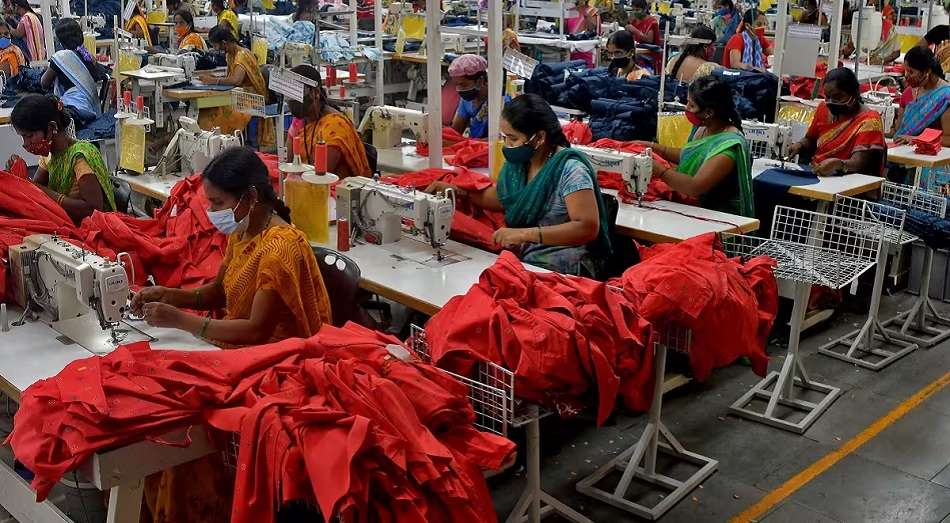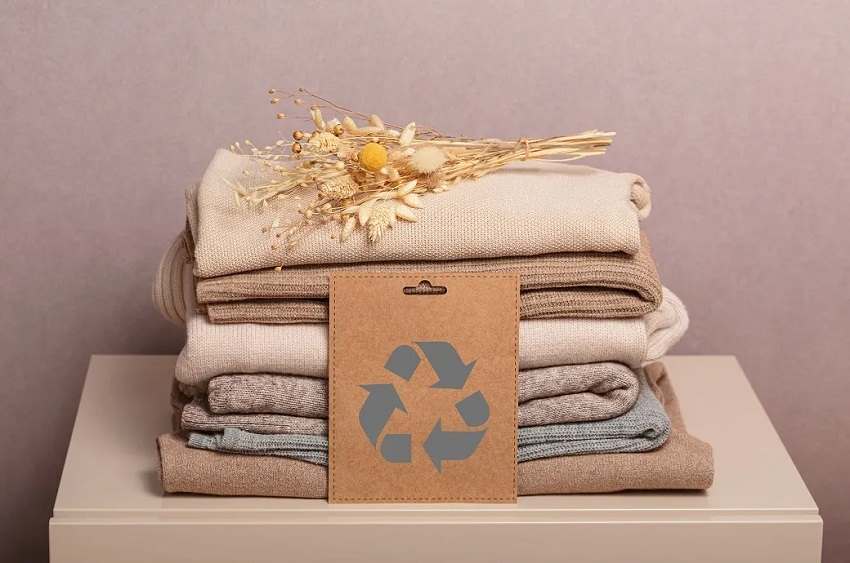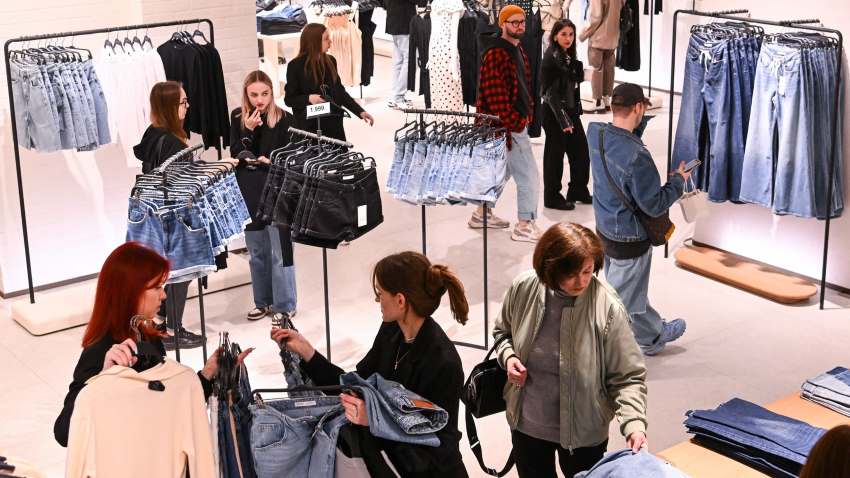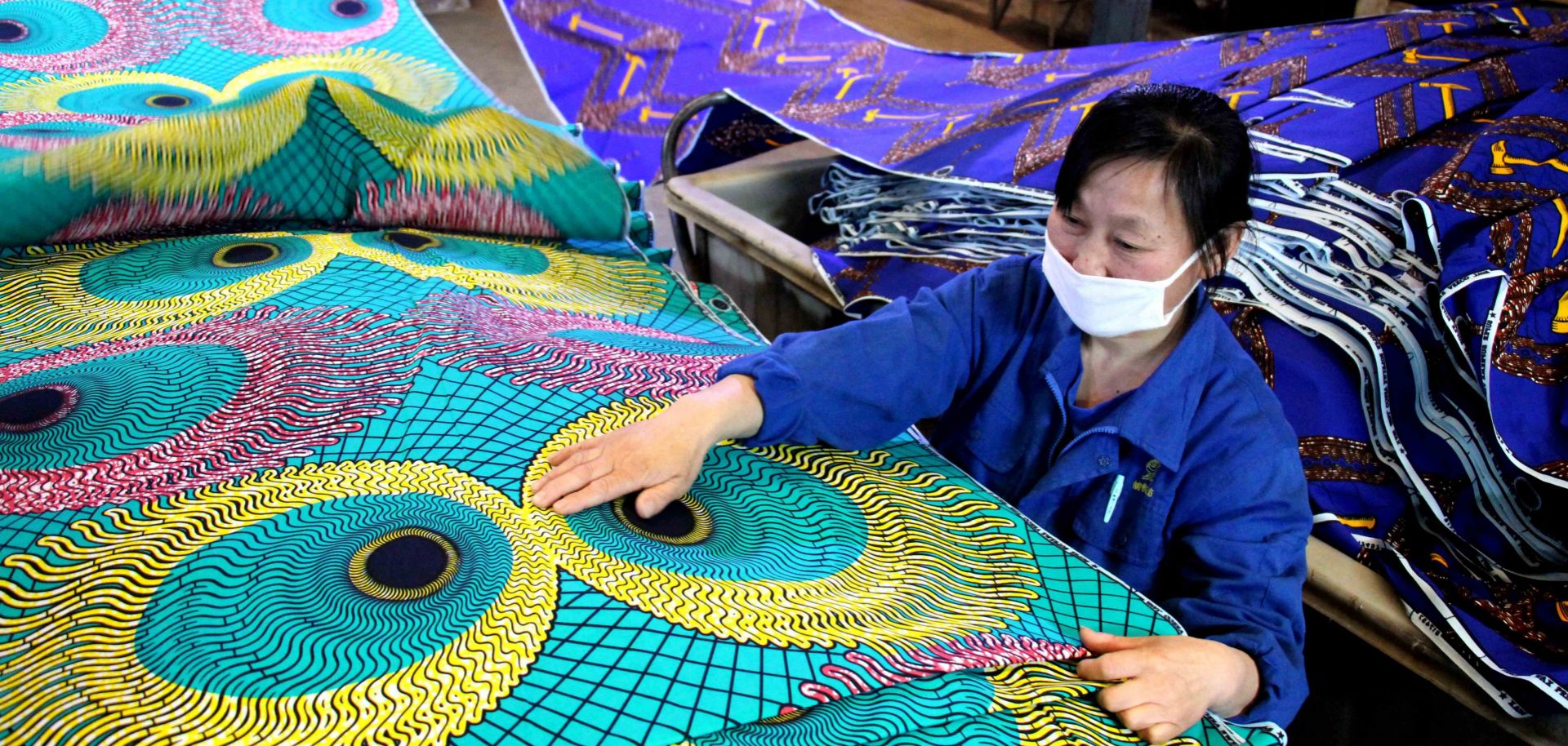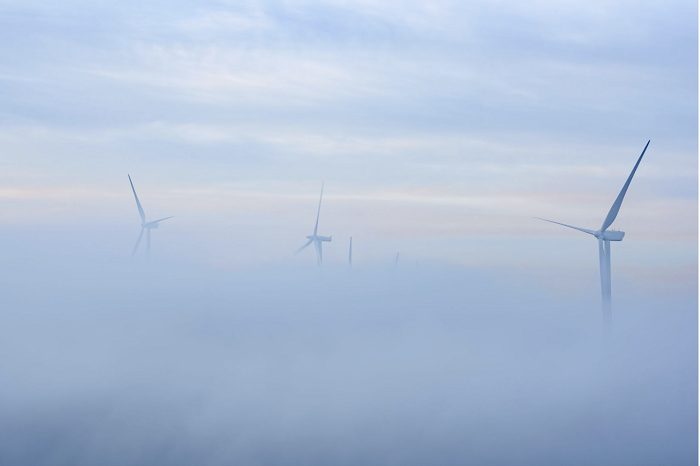FW
India’s exports rose 5.71 per cent in April. However, major labor-intensive sectors - gems and jewelry, leather and readymade garments -- may continue to see decline. These sectors are still facing the problem of liquidity as banks and lending agencies have continuously been tightening their lending norms and the flow of GST refunds has also slowed down.
Among labor-intensive sectors, readymade garment exports have continued to drop since October 2017. Exports in the sector fell by a significant 22.76 per cent in April, higher than the 17.78 per cent fall in March. At present, the industry is going through a tough period with its competitiveness greatly eroded. This is reflected in the unprecedented month on month decline in apparel exports every month after October 2017.
Refinery exports declined 4.5 per cent in April. This happened despite the rise in global crude prices notwithstanding. However, the rate of contraction reduced from 13.22 per cent in March and 27.44 per cent in February. This happened as major oil refineries were closed at the same time due to maintenance and other issues. Industrial production in the country witnessed a growth of 11.73 per cent in April against a 4.60 per cent rise the previous month.
In a so-called trade war, driven by reciprocal increases of import tariffs, nobody wins. One generally finds losers on both sides. Canada and the US are engaged in a trade dispute. Canada is firm on imposing equivalent tariffs to what the US has outlined for steel and aluminum, and these countermeasures would take effect from July 1. The European Union has made much the same, detailing duties on US products, including T-shirts, jeans and cotton bed linen.
These actions and reactions, apart from damaging long-standing relations, could incite a global trade war where consumers come out the biggest losers and no economy will likely emerge unscathed. Looming tariffs and their countermeasures could pose significant risks to the global economy. Unilateral trade actions aren’t only disruptive as they can prove counterproductive to the global economy and global trade as a whole.
It would be serious, not only if the United States took action, but especially if other countries were to retaliate, notably those who would be most affected, such as Canada, Europe, and Germany, in particular. Each, and including Mexico, has already promised to retaliate with tariffs of their own in the light of the United States’ actions. These measures are likely to move the globe further away from an open, fair and rules-based trade system.
"This seems to be a classic case of the big fish trying to swallow the smaller fish. The Rwandian move of imposing tariffs on the US export of second-hand clothes seems to have bruised many egos in the Donald Trump administration, which promptly suspended duty-free access to the US markets for Rwandan clothing. This squabble between the world’s economic giant and one of Africa’s fastest-growing economies reflects the difficulties that even a low-wage country like Rwanda can face developing an industry in an intensely competitive global market."
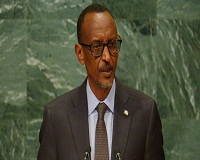 This seems to be a classic case of the big fish trying to swallow the smaller fish. The Rwandian move of imposing tariffs on the US export of second-hand clothes seems to have bruised many egos in the Donald Trump administration, which promptly suspended duty-free access to the US markets for Rwandan clothing. This squabble between the world’s economic giant and one of Africa’s fastest-growing economies reflects the difficulties that even a low-wage country like Rwanda can face developing an industry in an intensely competitive global market.
This seems to be a classic case of the big fish trying to swallow the smaller fish. The Rwandian move of imposing tariffs on the US export of second-hand clothes seems to have bruised many egos in the Donald Trump administration, which promptly suspended duty-free access to the US markets for Rwandan clothing. This squabble between the world’s economic giant and one of Africa’s fastest-growing economies reflects the difficulties that even a low-wage country like Rwanda can face developing an industry in an intensely competitive global market.
Blurred vision
Until recently, supporting African economic growth was the cornerstone of US-Africa policy. But, the suspension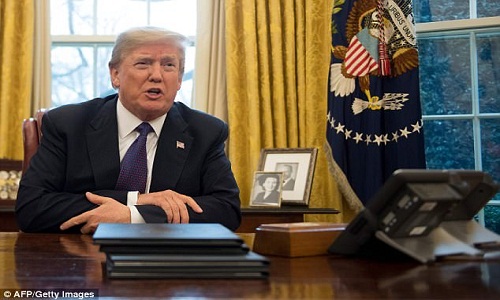 of access for Rwandan apparel reinforces the growing belief that the Trump administration’s trade vision is highly blurred. And there is no question that US businesses will suffer as a result. Africa represents the last frontier for America’s export-driven economy, with consumer and business spending predicted to reach $6.7 trillion by 2030. But the US misses a larger opportunity by engaging in petty trade squabbles and generally neglecting the continent.
of access for Rwandan apparel reinforces the growing belief that the Trump administration’s trade vision is highly blurred. And there is no question that US businesses will suffer as a result. Africa represents the last frontier for America’s export-driven economy, with consumer and business spending predicted to reach $6.7 trillion by 2030. But the US misses a larger opportunity by engaging in petty trade squabbles and generally neglecting the continent.
Maintaining dignity
Rwanda’s motivations are as much about dignity as they are about economics. Just as China recently banned imports of “foreign garbage” that it used to buy and recycle, Rwanda is taking a stand against the perceived indignity of buying clothes that others have worn and discarded. The White House fails to grasp this, as well as the bigger picture for the United States.
Rwanda has made huge economic progress in the past 25 years. But the ubiquity of recycled apparel – known as chagua – has stifled the growth of its nascent textile industry and has dented national pride.
A boost to local industry
The country recently launched a national ‘Made in Rwanda’ campaign to mobilise support for local entrepreneurs, artists and craftsmen as well as encourage companies to improve production quality and standards. TV and radio advertisements are also urging Rwandans to shop locally. The country has initiated a series of reforms to attract foreign investors, offering a friendly business environment and significant tax incentives.
Meanwhile, other economies are making aggressive commercial investments in Africa. China has been Africa’s leading trade partner for the last nine years; trade scuffles like this one with Rwanda can only further drive African states into China’s open arms. Nor is it just China — the European Union has been actively traveling the region, signing two-way trade agreements that will disadvantage American companies far more than any tariffs on secondhand clothing.
"All surveyed countries, apart from Brazil and Germany, expect a decrease in yarn output in the first quarter of 2018. Global yarn stocks were stable between the third and fourth quarter of 2017. A reduction in Brazil of 11 per cent, Egypt of 9 per cent, and Europe 4 per cent was cancelled out by a 3 per cent increase in Asia. Altogether, yarn stocks reached 96 per cent of their previous year level for the same quarter. Yarn orders increased on average between the third and fourth quarter of 2017. The order contraction in Korea Rep. has been compensated by positive trends in the other reporting countries."
 The International Textile Manufacturers Federation (ITMF) is an international forum for the world's textile industries, dedicated to keeping the world-wide membership constantly informed through surveys, studies and publications, participating in the evolution of the industry's value chain and through the organisation of annual conferences as well as publishing considered opinions on future trends and international developments.
The International Textile Manufacturers Federation (ITMF) is an international forum for the world's textile industries, dedicated to keeping the world-wide membership constantly informed through surveys, studies and publications, participating in the evolution of the industry's value chain and through the organisation of annual conferences as well as publishing considered opinions on future trends and international developments.
The ITMF recently published its State of Trade report for the fourth quarter of 2017. As per the report, global yarn production decreased by 23 per cent between the third and fourth quarter of 2017. Output reductions in Brazil by 23 per cent, Asia by 14 per cent, and the U.S.A. by 4 per cent balanced out the increase in Africa by 12 per cent and Europe by 15per cent.
Stable stocks
All surveyed countries, apart from Brazil and Germany, expect a decrease in yarn output in the first quarter of 2018. Global yarn stocks were stable between the third and fourth quarter of 2017. A reduction in Brazil of 11 per cent, Egypt of 9 per cent, and Europe 4 per cent was cancelled out by a 3 per cent increase in Asia. Altogether, yarn stocks reached 96 per cent of their previous year level for the same quarter. Yarn orders increased on average between the third and fourth quarter of 2017. The order contraction in Korea Rep. has been compensated by positive trends in the other reporting countries.
between the third and fourth quarter of 2017. A reduction in Brazil of 11 per cent, Egypt of 9 per cent, and Europe 4 per cent was cancelled out by a 3 per cent increase in Asia. Altogether, yarn stocks reached 96 per cent of their previous year level for the same quarter. Yarn orders increased on average between the third and fourth quarter of 2017. The order contraction in Korea Rep. has been compensated by positive trends in the other reporting countries.
Decrease in global index
The global fabric production decreased from third quarter by 2 per cent. A respective 12 per cent and 2 per cent contraction in Brazil and Asia drove the world average in the negative range. Fabric output, however, increased by 6 per cent and 10 per cent in Africa and Europe respectively. The world output level reached 95 per cent of its Q4/16 level. Europe and Brazil are expected to increase production in the first quarter of 2018.
In the fourth quarter of 2017, the global fabric stock level slightly grew by 3 per cent. This increase was driven by Brazil, and elevated the index of fabrics stocks by 3 per cent above the fourth quarter of 2016. In 2017, stocks have been stable in Asia and the U.S.A. They increased steadily in Europe and Brazil and constantly decreased in Egypt. On an average, fabric orders declined by 23 per cent between the third and fourth quarter of 2017 in the countries under review. The growth of 11 per cent and 2 per cent in Egypt and Europe was not sufficient to compensate for the reductions of 31 per cent in Brazil. The global index for fabric orders decreased by 3 per cent since the fourth quarter of 2016.
"One of the most important of the company’s investments includes the launch of Wel-Trak™ - a patented, end-to-end traceability process that ensures that customers can trace the origin of the cotton raw materials throughout the supply chain from farm to retail shelf. Welspun also entered into a tie-up with Oritain Global, a world leader in the use of scientific traceability to determine provenance of food, beverages, pharmaceuticals and cotton fibre. This partnership uses chemical fingerprinting to identify the origin of the cotton fibre used for its home textile products. Oritain has created a database of unique ‘chemical fingerprints’ for special cotton growing areas such as Egyptian, US Supima and Australian cotton. This will be extended to include Organic and American Upland cottons. This database enables Oritain to verify a sample against its stated origin. Using this method, Welspun can conduct tests at various stages of its manufacturing process and ensure the authenticity of its final products."
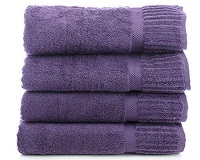 Even though Welspun reported a decline in earnings in the Q3 of FY 2017-18, the company is optimistic about business in 2018. Operating mainly in the global markets like the US, Canada, UK, Europe and Japan, Welspun has a distribution network in over 50 countries. It supplies to 17 of the top 30 global retailers like: Bed Bath & Beyond, Costco, Kohl’s, Walmart and Macy’s, to name a few. A customer-centric organisation, Welspun India aims to consistently deliver on the promise of excellence. The company has made many interesting strategic investments that includes a new state-of-the art warehousing facility in the US East Coast for future-ready supply chain.
Even though Welspun reported a decline in earnings in the Q3 of FY 2017-18, the company is optimistic about business in 2018. Operating mainly in the global markets like the US, Canada, UK, Europe and Japan, Welspun has a distribution network in over 50 countries. It supplies to 17 of the top 30 global retailers like: Bed Bath & Beyond, Costco, Kohl’s, Walmart and Macy’s, to name a few. A customer-centric organisation, Welspun India aims to consistently deliver on the promise of excellence. The company has made many interesting strategic investments that includes a new state-of-the art warehousing facility in the US East Coast for future-ready supply chain.
Transparency in supply chain
One of the most important of the company’s investments includes the launch of Wel-Trak™ - a patented, end-to-end traceability process that ensures that customers can trace the origin of the cotton raw materials throughout the supply chain from farm to retail shelf. Welspun also entered into a tie-up with Oritain Global, a world leader in the use of scientific traceability to determine provenance of food, beverages, pharmaceuticals and cotton fibre. This partnership uses chemical fingerprinting to identify the origin of the cotton fibre used for its home textile products. Oritain has created a database of unique ‘chemical fingerprints’ for special cotton growing areas such as Egyptian, US Supima and Australian cotton. This will be extended to include Organic and American Upland cottons. This database enables Oritain to verify a sample against its stated origin. Using this method, Welspun can conduct tests at various stages of its manufacturing process and ensure the authenticity of its final products.
customers can trace the origin of the cotton raw materials throughout the supply chain from farm to retail shelf. Welspun also entered into a tie-up with Oritain Global, a world leader in the use of scientific traceability to determine provenance of food, beverages, pharmaceuticals and cotton fibre. This partnership uses chemical fingerprinting to identify the origin of the cotton fibre used for its home textile products. Oritain has created a database of unique ‘chemical fingerprints’ for special cotton growing areas such as Egyptian, US Supima and Australian cotton. This will be extended to include Organic and American Upland cottons. This database enables Oritain to verify a sample against its stated origin. Using this method, Welspun can conduct tests at various stages of its manufacturing process and ensure the authenticity of its final products.
Owner of two of Asia’s top vertically integrated manufacturing facilities in Vapi and Anjar, Welspun has chalked out numerous plans for the future. The group recently invested in a Rs 1,261-crore technical textile project, Welspun Flooring in Telangana. The project involves manufacturing of floor covering carpets and luxury vinyl tiles.
CSR & Sustainability initiatives
CSR and sustainability are two core initiatives taken up by the company. Its manufacturing facilities boast of zero discharge facilities with high water and energy efficiency. The group has also undertaken several initiatives for integrated rural development. The women upcycle waste fabric from the company’s Anjar manufacturing unit is used to create handcrafted one-of-a-kind quilts, decorative pillows, and other bedding accessories under the brand ‘Spun’ and can be found on the shelves of top retailers across the globe. Creating over 2,00,000 products annually, Welspun provides financial stability to around 600 women and their families involved with the initiative. The company has also partnered Walmart’s Swasti Foundation for Women Empowerment and Training. So far, it has successfully trained 2,335 women in foundation level courses and over 500 in advanced level courses. And to reduce dependency on the Narmada river, the group set up 30-mid waste water treatment facility at Anjar. The company installed community based RO plants across eight villages in Anjar and three villages in Vapi, providing pure drinking water to over 10,000 villagers. A strong believer in sustainable business, Welspun India has launched Welspun 2.0 to create customer delight through innovative offerings and building a robust business. . The group is collaborating and exchanging ideas across the value chain to create sustainable solutions that will have a positive long-term impact.
Apparel exports from Sub-Saharan African nations have grown significantly over years. The 50-nation bloc exported apparels worth $377.37 million to the US in January-April 2018 period, marking a solid growth of 23.22 per cent on the yearly note and successfully capitalised on the African Growth and Opportunity Act (AGOA). Ethiopia, for instance, has grown from $13.41 million to $30.39 million with a staggering surge of 126.63 per cent during the period.
Kenya exported apparels worth $120.67 million in the first four months of 2018 as against $101.66 million in the corresponding period of prior-year. The country grew by 18.70 per cent in just one year which is more than just a decent growth. The ‘buzz’ around Ethiopian apparel exports isn’t that real, which earned $98.60 million from its export of apparel to the US, posted a noteworthy increase of 19.88 per cent on the year-on-year basis. Apparel exports from Madagascar to the US were $59.10 million in the period with a whopping 25.73 per cent rise over last year. Mauritius posted 10.48 per cent growth to reach $48.19 million in apparel export values in Jan.-Apr. ’18 from $43.62 million in the same period of 2017.
Roica’s collection of superior functional fabrics is revolutionizing the premium stretch market, thanks to advanced yarn solutions dedicated to specific needs of the contemporary consumer. The stretch innovations range from smart shape wear to soft compression that can enhance designs.
The Eco Smart family of yarns is the world’s first range of responsibly made premium stretch fibers that offer sustainable solutions with prestigious certifications. Feel Good is a range of advanced stretch fibers that deliver personal performance and measurable wellness, providing freshness and comfort metrics perfect for travel, sport, leisure and more.
Roica CF is an innovative yarn that neutralizes odors thanks to an active ingredient interlocked within the yarn. This durable stretch yarn offers a fantastic property to every wearer. Color Perfect is an advanced color technology system that delivers a perfect color match finish with an undetectable matte look for the stretch materials. Contour is a high performance stretch yarn control that delivers a calibrated form optimizing power, softness and comfort.
Resistance is a family of innovations linked to durability and functions to match particular applications including heat and chemical resistance in make and wear. Roica Version 3.0 yarn is constructed with more than 50 per cent pre-consumer recycled content.
Georgia is the guest nation at the ongoing Florence edition of Pitti Uomo being held from June 12to 15 2018. Earlier editions had seen South Korea, Africa, the Ukraine, Turkey, Denmark, Australia and Finland as guest nations. Georgia was selected as fashion is booming in the country, after the success of Demna Gvasalia, founder of Vetements and Creative Director at Balenciaga, and of his countryman David Koma, in charge of style at Thierry Mugler.
The 94th edition of the Pitti Uomo menswear show will be held in collaboration with Pitti Uomo and the Mercedes-Benz Fashion Week of Tbilisi. The show will display the creativity in Florence through the work of six Georgian designers. The first being Iraklli Rusadze, Founder of women’s ready-to-wear label Situationist, who will present Azanauri, the menswear label launched in 2016 of which he is the Creative Director. The second designer Tatuna Nikolaishvili founded her women’s ready-to-wear label in 2003, and at Pitti Uomo she will show her first unisex collection, featuring trousers and jackets made with quality Italian and Turkish fabrics, such as tweed or raw cotton.
Vasili Tabatadze, Head of men’s and women’s label Vaska, favours natural materials and craftsmanship, while Anuka Keburia is an accessories specialist and launched her own footwear label in 2006. The most exuberant of the six designers is doubtlessly Gola Zumbulidze known for his men’s and women’s label Gola Damian. His colourful, flamboyant clothes are a hymn to love and happiness, though never without a touch of humour.
Swedish non-profit organisation Swedwatch has published a report ‘Power of the voice’ that explores the perspectives of workers and buyers in the Bangladesh garment sector and the ‘social dialogue’ which was supposed to have been established post-Rana Plaza. The report makes recommendations based on its findings, relating to some of the most pivotal issues in the RMG sector such as: freedom of association, anti-union policy making, due diligence and transparency.
The non-profit organisation hopes, to provide a basis for discussion on the responsibilities of companies active in markets where the rights to freedom of association and collective bargaining are systematically infringed upon. The recommendations of Swedwatch include assessing and responding to the potential impacts of brands’ purchasing practices on suppliers’ compliance with freedom of association and collective bargaining; identifying and preventing anti-union policies and practices in supplier factories, to comply with the relevant International Trade Union Confederation’s guidance; using collective bargaining agreements as a basis for creating incentives for suppliers, for example by including a measurable CBA premium in unit prices, continue sourcing from unionised facilities, and when expanding production, give preference to unionised locations; publicly communicating the results of the due diligence processes regarding risks to freedom of association and collective bargaining, such as the share of workers covered by collective bargaining agreements and regularly publishing a detailed, searchable list of all sites that manufacture the company’s products and audit results for each factory.
Malaysia wants the Trans-Pacific Partnership to be renegotiated and has urged protection for small countries in international trade. Eleven countries circling the Pacific signed a slimmed-down version of the TPP in March, opting to proceed with the deal after it was left for dead when the US pulled out.
Malaysia’s ideal is a broad trade pact such as the East Asian Economic Caucus. Signatories to the TPP represent 13.5 per cent of the global economy and a market of 500 million people. The deal was pushed by the US in part as a way to counter growing Chinese commercial power. It cuts tariffs and requires members to comply with a high level of regulatory standards in areas like labor law and environmental protection.
Malaysia does not want to be manipulated by the big players in the TPP. Its call to review the TPP agreement would be a blow for the eleven-member trade pact, which was finalized after tough negotiations earlier this year following the withdrawal of one of the original signatories, the United States. The Comprehensive and Progressive Agreement for Trans-Pacific Partnership, as it is now called following the US withdrawal, will reduce tariffs in countries that together amount to more than 13 per cent of the global economy. With the United States, it would have represented 40 per cent.

